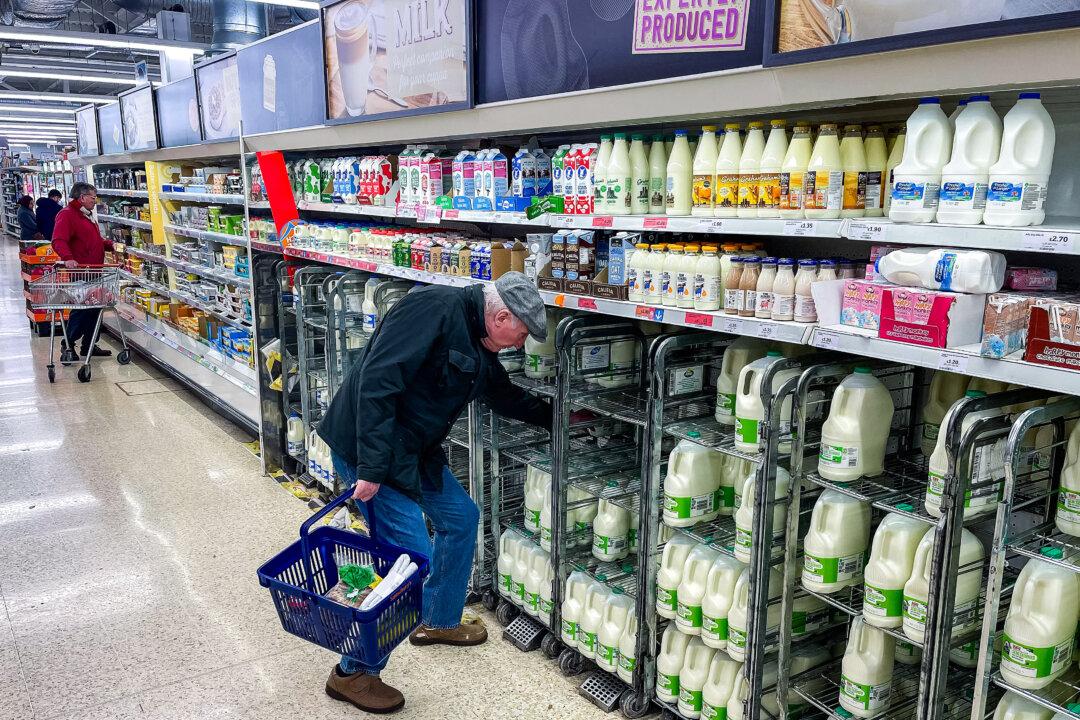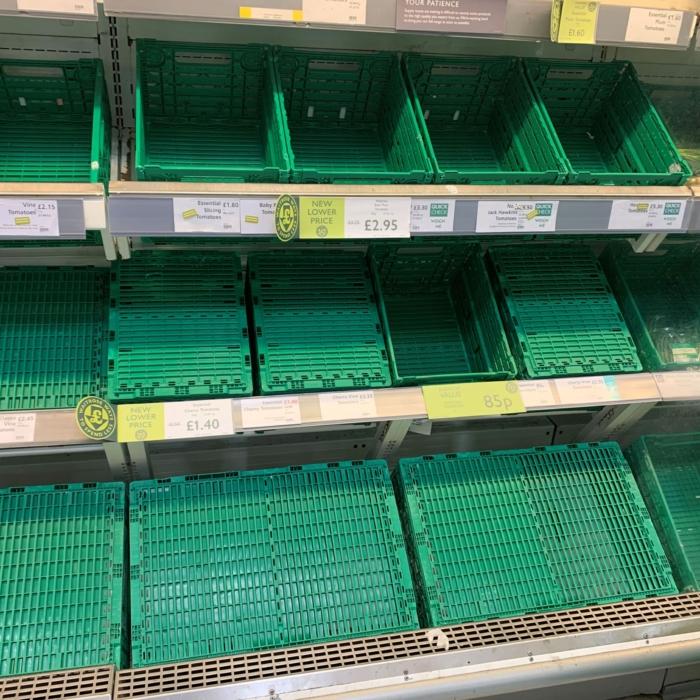Organic milk producers could have to scale back on production, according to the Agriculture and Horticulture Development Board (AHDB).
Organic farming standards ban the routine use of antibiotics and wormers, requiring cows to be fed a natural and organic diet, primarily grass.
Declined Significantly
Organic milk production has declined significantly in recent years, primarily “due to the cost-of-living crisis and consequent weakening consumer demand,” the AHDB said.In the 2023/24 milk year, which runs from March to March, 371.1 million litres of organic milk were produced, which is 14 percent down on the previous year that also saw a decline.
‘In Kilter’
David Swales, head of EA operations at AHDB told The Epoch Times by email that many organic farmers have reverted to conventional production owing to high costs and low availability of organic feed, which puts pressure on profit margins.“Whilst organic production does command a premium, some farmers felt the premium offered was not sufficient to encourage them to maintain production,” he said.
“Supply and demand were in kilter. Consumer demand for organic in retail was in double digit decline last year but has now returned to growth—organic milk demand was up by 3.9 percent year-on-year. The other big user of organic milk in the UK is food service with McDonalds famously only serving organic milk,” he said.
However, he said that once organic farms have switched to conventional it is a fairly long process to switch back, with it typically taking between two and three years for a farm to achieve organic status.
“This could result in some shortages of organic milk until supplies build back up. However, consumer confidence, while increasing, is fragile and further economic shocks and uncertainty could put a dampener on the return of demand,” he added.
Rewilding
The UK government has pushed for land to be rewilded as part of efforts to protect native plant and animal species and cut the country’s carbon footprint.A 2022 report by the Tenancy Working Group said that markets “for environmental outcomes will be part of the future farm revenue and cashflow” and that “income from these markets may compete with agricultural rent in the future.”
“If the value of natural capital outcomes increases, and tenants are not able to take part in the market, landowners may choose to stop renting their land for agriculture and instead cash in on natural capital,” the report said.
Knight Frank said that by giving way to an environmental support model it predicted “that buyers motivated by a green agenda will become an ever larger part of the market.”







